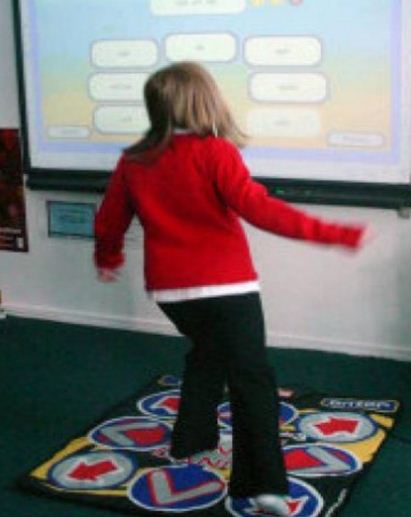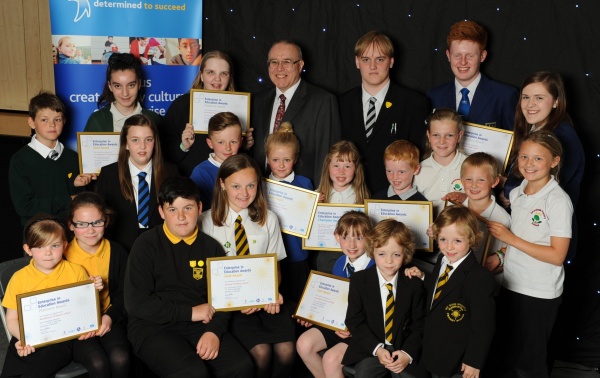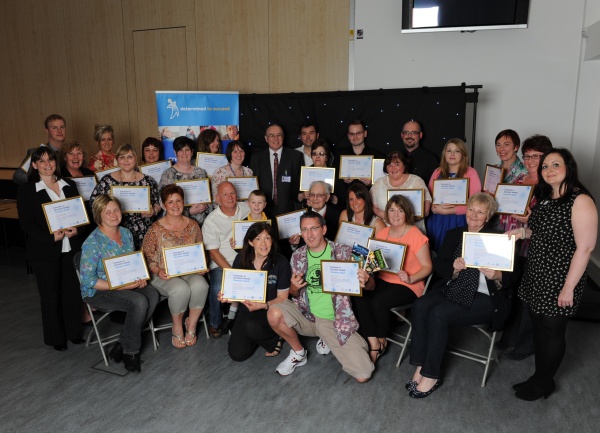 Malcolm Wilson, ICT Curriculum Development Officer in the Curriculum Support Team of Falkirk Council Education Services, presented a session with class teachers and visiting specialist teachers of physical education on ICT resources to support teaching physical education in the primary school.
Malcolm Wilson, ICT Curriculum Development Officer in the Curriculum Support Team of Falkirk Council Education Services, presented a session with class teachers and visiting specialist teachers of physical education on ICT resources to support teaching physical education in the primary school.
Dance
The session started by everyone having go at the dance steps provided with the dance mat to all Falkirk primary schools (along with the free software installed on all PCs). More information about that can be found here: http://glo.li/L7znnN
Glow Groups for teachers of PE
The session included time to browse the planning and support materials for teachers of PE which can be found in various Glow groups which included the following:
Falkirk Glow group for teachers of PE http://glo.li/e2ZeBf
Curriculum for Excellence Expanded Experiences & Outcomes (Falkirk Planners) PE http://glo.li/WKnowe
Falkirk PE resources in Glow group for Health & Wellbeing http://glo.li/gov97Y
National Glow group for teaching PE http://glo.li/Y93cGJ
Online Resource Sites
Online resources which were highlighted included the following:
www.kidnetic.com ideas for classroom, hall, outdoors or in the home – includes on-screen dance robot simulator
http://cybraryman.com/physicaled.html Cybraryman resources by category
www.pescholar.com PE Scholar
www.physedsource.com PhysEdSource – categories include gymnastics, sport/games, individual, outdoor, dance, health, research
www.thephysicaleducator.com/resources/ includes games skills cards/infographics posters, apps, blog, podcast, pupil recognition cards
www.teachingideas.co.uk/pe/contents.htm crowd-sources ideas shared by teachers, warm-up and cool-down ideas, games, sports.
Smartboard Smart Notebook Resources
SMART Board SMART Notebook PE resources can be found in Notebook by clicking on “Gallery” – enter “sport” in search box http://glo.li/rQ3eRl
Blog about class PE
Creating a class PE blog can help raise profile of PE, promote positive pupil esteem, share learning of PE activities Resources to get staretd blogging can be found here: http://glo.li/qMeQl3
Activity Timers and Random Name Selectors
A host of online or downloadable countdown timers & stopwatches, and random name, group or activity selectors, can be found here: http://glo.li/jU9ja0
Teachers of PE on Twitter
Twitter provides access to a Professional Learning Network of colleagues sharing PE teaching ideas. Resources and a guide to setting up a Twitter account and how to use can be found here: http://glo.li/qpaM79. A short video guide “Twitter for PE Teachers” including how to get started, how to find others, use of Hashtags and more can be found here: http://www.youtube.com/watch?v=AMjGcrBJK-c
QR codes and PE
QR codes provide quick access via smartphone QR code scanner to videos or explanatory onlien resources without any need to type in long website addresses. For examples of use of printed Step-by-step guides linked by QR codes to associated PE skills demonstration videos follow this link:
http://www.thephysicaleducator.com/resources/skill-posters/
This Video shows a report of one teachers use at a school fitness trail http://glo.li/YU4beZ
For resources to find out how to make you own QR codes follow this link here: http://glo.li/z1JVmB
Making Videos to show PE skills
Use digital video cameras for pupils to see their performance after they have finished and to compare it against their peers or against videos of professional athletes. Resources here for video cameras: http://glo.li/gTmdzS. Resources for editing video: https://blogs.glowscotland.org.uk/fa/ICTFalkirkPrimaries/2010/09/16/video-editing-with-windows-live-movie-maker/Resources here for making videos from still image photographs: https://blogs.glowscotland.org.uk/fa/ICTFalkirkPrimaries/2011/03/09/photostory-3/
Comments from participants included:
“I intend to use Photostory 3 especially for gymnastics.”
“Excellent course!”
















